
Yes are an English progressive rock band formed in London in 1968 by lead singer Jon Anderson, bassist Chris Squire, guitarist Peter Banks, keyboardist Tony Kaye, and drummer Bill Bruford. The band has undergone numerous lineup changes throughout their history, during which 20 musicians have been full-time members. Since February 2023, the band has consisted of guitarist Steve Howe, keyboardist Geoff Downes, bassist Billy Sherwood, singer Jon Davison, and drummer Jay Schellen. Yes have explored several musical styles over the years and are most notably regarded as progressive rock pioneers.

Theodore Herman Albert Dreiser was an American novelist and journalist of the naturalist school. His novels often featured main characters who succeeded at their objectives despite a lack of a firm moral code, and literary situations that more closely resemble studies of nature than tales of choice and agency. Dreiser's best known novels include Sister Carrie (1900) and An American Tragedy (1925).

Elyria is a city in, and the county seat of, Lorain County, Ohio, United States, located at the forks of the Black River in Northeast Ohio 23 miles (37 km) southwest of Cleveland. As of the 2020 census, the city had a population of 52,656. It is a principal city in the Cleveland metropolitan area. The city is home to Lorain County Community College.
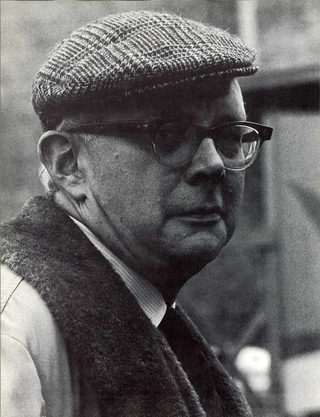
Irving Howe was an American literary and social critic and a prominent figure of the Democratic Socialists of America.

Winesburg, Ohio is a 1919 short story cycle by the American author Sherwood Anderson. The work is structured around the life of protagonist George Willard, from the time he was a child to his growing independence and ultimate abandonment of Winesburg as a young man. It is set in the fictional town of Winesburg, Ohio, which is loosely based on Anderson's childhood memories of Clyde, Ohio.

Sherwood Anderson was an American novelist and short story writer, known for subjective and self-revealing works. Self-educated, he rose to become a successful copywriter and business owner in Cleveland and Elyria, Ohio. In 1912, Anderson had a nervous breakdown that led him to abandon his business and family to become a writer.
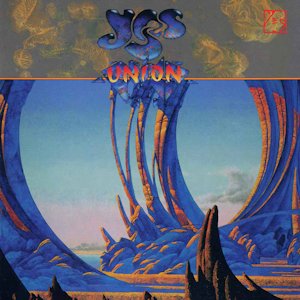
Union is the thirteenth studio album by English progressive rock band Yes, released on 30 April 1991 by Arista Records. Production began following the amalgamation of two bands that featured previous and then-current members of Yes: Anderson Bruford Wakeman Howe (ABWH), consisting of vocalist Jon Anderson, drummer Bill Bruford, keyboardist Rick Wakeman and guitarist Steve Howe, and Yes, at that time comprising bassist and vocalist Chris Squire, guitarist and vocalist Trevor Rabin, keyboardist Tony Kaye and drummer Alan White. The eight musicians signed with Arista and a combination of unfinished tracks by both groups were selected for Union. The album's sessions were problematic from the start, including disagreements between some of the musicians regarding the "merger" of the two bands, strained relations during the recording process, and decisions by the production team of Anderson and producer Jonathan Elias to bring in session musicians to re-record parts that Wakeman and Howe had originally completed.
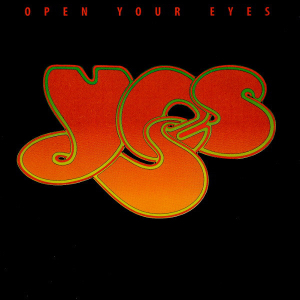
Open Your Eyes is the seventeenth studio album by the English rock band Yes, released in November 1997 by Eagle Records in the UK and by Beyond Music in the US. Following the 1996 revival of the 1970s "classic" line-up of Yes, the band's relationship with management had broken down and keyboardist Rick Wakeman had once again left the band. While various other members dispersed, guitarist, keyboardist, and producer Billy Sherwood began developing new songs with band bassist and de facto leader Chris Squire to prevent the band from losing momentum and fully splitting. Yes' new management company suggested adding a couple of songs originally written for Squire and Sherwood's other band Conspiracy to help build up material for a new Yes studio album. With the writing and production sessions dominated by Squire and Sherwood, and with singer Jon Anderson, guitarist Steve Howe and drummer Alan White only involved later in the process, the writing and creative input of the latter three members was limited.
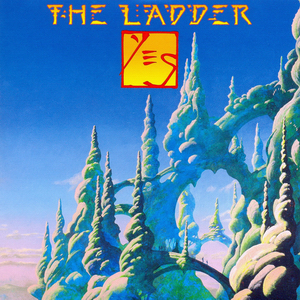
The Ladder is the eighteenth studio album by the English progressive rock band Yes, released in September 1999 on Eagle Records. It is their only studio album recorded with six full time members and their last with keyboardist Igor Khoroshev.

Dark Laughter is a 1925 novel by the American author Sherwood Anderson. It dealt with the new sexual freedom of the 1920s, a theme also explored in his 1923 novel Many Marriages and later works. The influence of James Joyce's Ulysses, which Anderson had read before writing the 1925 novel, is expressed in Dark Laughter.

Death in the Woods is a 1933 short story collection by Sherwood Anderson. It was the last of Anderson's books to be published by Boni & Liveright before the firm's financial collapse. Most of the stories in the collection were previously published either in magazines and books. According to John Earl Bassett, most of the stories in Death in the Woods were written between 1926 and 1930 with four preceding that time and one following.

William McPherson was an American writer and journalist. He is the author of two novels, Testing the Current and To the Sargasso Sea, and many articles, essays, and book reviews. McPherson was awarded the Pulitzer Prize for Distinguished Criticism in 1977.

Chicago literature is writing, primarily by writers born or living in Chicago, that reflects the culture of the city.

Marching Men is a 1917 novel by American author Sherwood Anderson. Published by John Lane, the novel is Anderson's second book; the first being the 1916 novel Windy McPherson's Son. Marching Men is the story of Norman "Beaut" McGregor, a young man discontented with the powerlessness and lack of personal ambition among the miners of his hometown. After moving to Chicago he discovers his purpose is to empower workers by having them march in unison. Major themes of the novel include the organization of laborers, eradication of disorder, and the role of the exceptional man in society. The latter theme led post-World War II critics to compare Anderson's militaristic approach to homosocial order and the fascists of the War's Axis powers.
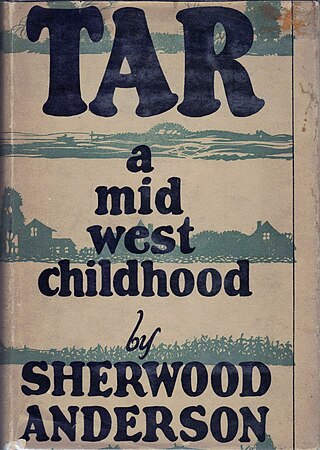
Tar: A Midwest Childhood is a 1926 fictionalized memoir by American author Sherwood Anderson. It was originally published by Boni & Liveright and has since been republished several times including a 1969 critical edition. The book is made up of episodes in the childhood of Edgar Moorehead. The fictional location of Tar: A Midwest Childhood bears a resemblance to Camden, Ohio where Sherwood Anderson was born, despite him having spent only his first year there. An episode from the book later appeared, in a revised form, as the short story "Death in the Woods" (1933).

Horses and Men is a 1923 short story collection by the American author Sherwood Anderson. It was Anderson's fourth book to be published by B.W. Huebsch and his third collection after the successful short story cycle Winesburg, Ohio. The book was dedicated to writer Theodore Dreiser and included a two-page essay about him titled "Dreiser" in addition to a foreword and nine stories.
Thaddeus Baker Hurd was an architect and historian who is known for his interest and extensive research in the history of the city of Clyde, Ohio, United States. Hurd had several jobs in the field of architecture until his retirement in 1967. He was the founder of the Clyde Heritage League, a historical society. His work was contributed to several museums and libraries.

















